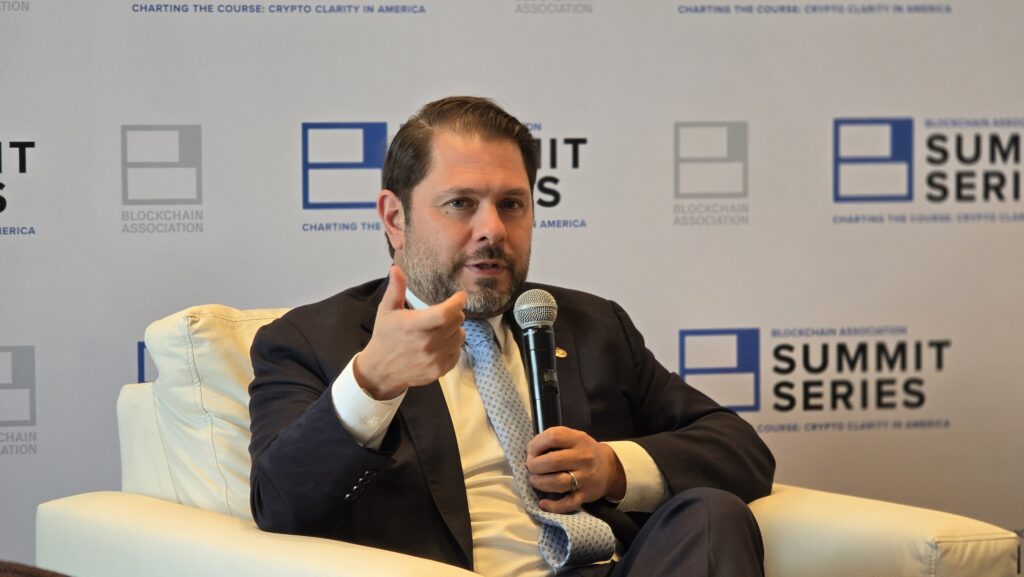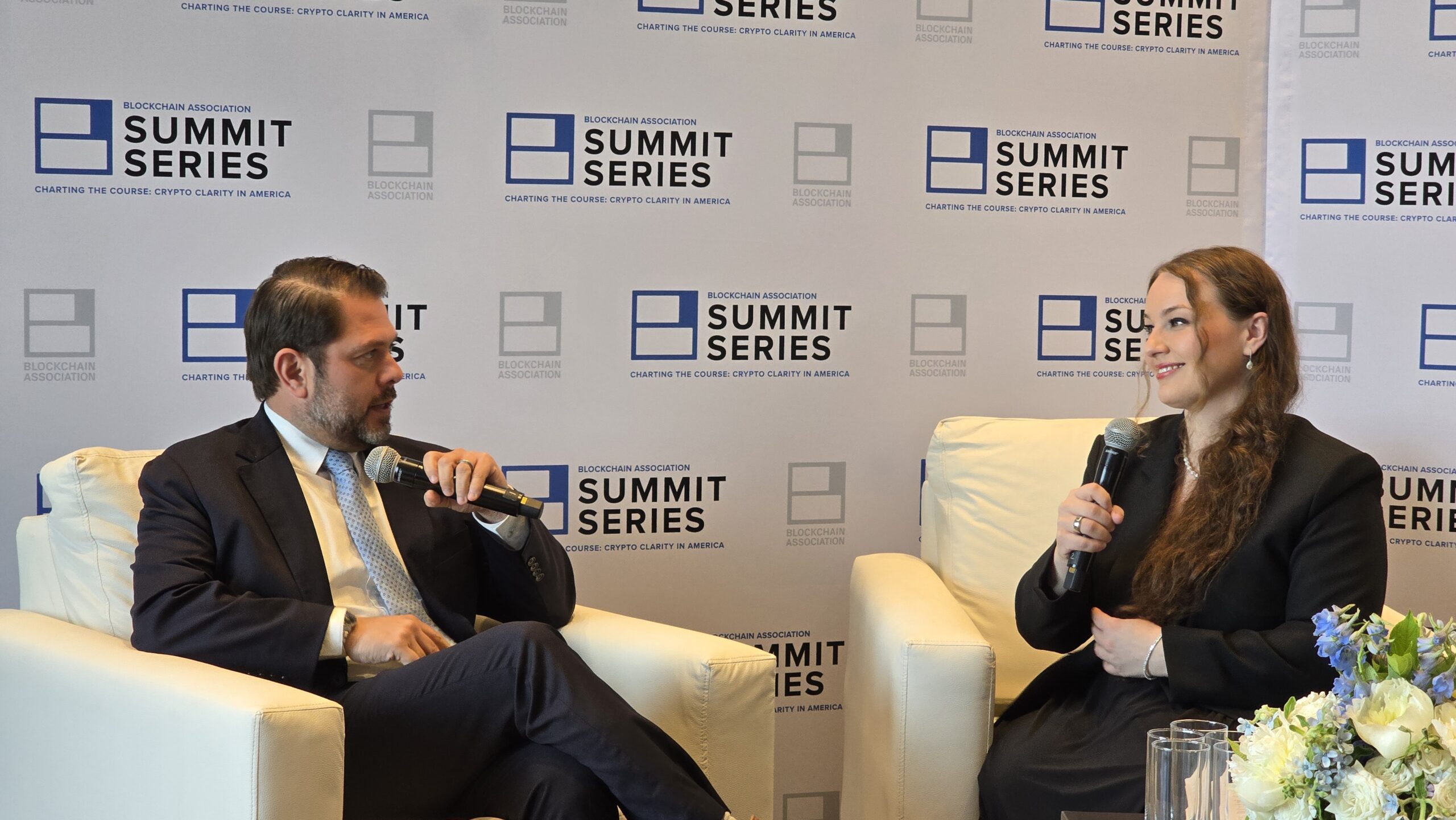When Senator Ruben Gallego (D-AZ) took the stage, the energy in the room shifted. He wasn’t just there to talk policy, he was there to tell a story about why crypto matters, not just to Wall Street, but to the neighborhoods and families that have long been left out of the American financial system. This was held at the Riggs, with the Blockchain Association’s, Summit Series.
Gallego, who represents a working-class, predominantly Hispanic and Black district in Arizona, described how he first became interested in crypto—not through lobbyists or tech moguls, but through conversations with his own constituents. “My district is largely working class Hispanic,” he explained, “and the fact that there were young Black men and Latino men talking about crypto, trading crypto, using Bitcoin ATMs in South Phoenix—that told me something was happening.”
For Gallego, this wasn’t just a passing trend. It was a signal that crypto was offering a new kind of financial access to people who had, for generations, felt locked out of the system. “This community… is unfortunately locked out of our financial system for different structural reasons, or just not feeling comfortable with it,” he said. “But for some reason, they felt more comfortable working and trading in this world.”
He pushed back hard against the stereotype that crypto is only for “rich white tech bros.” In fact, Gallego argued, the crypto industry is more diverse than many traditional sectors. “I’ve met more female CEOs in the crypto industry than I have in traditional finance,” he said. “I’ve met more men and women of color involved both on the development side and at the C-suite level.” For him, the narrative that crypto is exclusionary just doesn’t hold up.

Gallego’s advocacy isn’t just rhetorical, he’s been in the trenches, negotiating landmark legislation like the stablecoin bill. He described marathon sessions with colleagues from both parties, hammering out the details line by line. Unlike the TV version of politics, where staff do most of the work, Gallego and a handful of senators were actually in the room, making the tough calls themselves. “We aimed for near-perfection, not perfection,” he said, emphasizing the importance of getting something good and workable, even if it isn’t flawless.
He’s also keenly aware of the global stakes. Gallego invoked the postwar Bretton Woods agreement, which cemented America’s financial leadership for decades. “We set the rules early enough that we benefited from it,” he said. “How do we do that for this industry? I want the United States to have that first-mover advantage, to bring the money, the brainpower, the business here, and dominate for the next century.”
But Gallego isn’t just looking backward, he’s looking ahead to the next big challenge: market structure legislation. He sees this as existential for the future of crypto in America. Without clear rules, he warns, “it’s like buying a car without all four wheels. The engine will start, but it’s not going to move.” He’s optimistic that progress can be made before the election cycle grinds everything to a halt, but cautions that rushing a weak bill could backfire. “If we move too fast with a s***** product, then you’re going to have a shaky boat. That’s my concern.”
Ultimately, Gallego’s vision is one of transformation. He sees crypto not just as a technology, but as a force that could reshape everything from how artists get paid to how everyday Americans build wealth. “It’s like seeing the advent of the internet and social media again,” he said, his excitement palpable. But he’s also clear-eyed about the need for smart, flexible regulation that protects consumers without stifling innovation. “We need a government that is responsive enough to be helpful, to put up guardrails where needed, but also nimble enough to adapt.”
And amid all this, Gallego revealed a personal milestone: he’s about to become a father again. “If you see me run, that’s because my wife went into labor,” he joked, drawing laughter from the crowd.
In Senator Gallego, crypto has found not just a policy advocate, but a storyteller, someone who sees the technology’s potential to bridge divides, empower the excluded, and keep America at the forefront of innovation. For him, the fight for crypto is personal, urgent, and, above all, hopeful.
For more information, please visit the following:
Website: https://www.josephraczynski.com/
Blog: https://JTConsultingMedia.com/
Podcast: https://techsnippetstoday.buzzsprout.com
LinkedIn: https://www.linkedin.com/in/joerazz/


Leave a Reply
You must be logged in to post a comment.